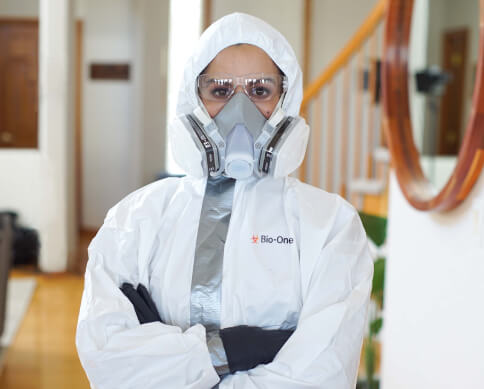Some Types of Biohazards
Commonly, biohazards are understood to be either bloodborne pathogens or infectious diseases.
Bloodborne pathogens
When an accidental injury involves bleeding, many of us clean up after ourselves, and generally, that is fine in our homes. But blood can carry many different types of infectious diseases, and improper blood cleaning can lead to the transference of an infectious disease.
In the workplace, or any communal location, it is incredibly important to have a proper cleanup of blood spilled to avoid transference of infectious pathogens, including the top three:
- Hepatitis B
- Hepatitis C
- HIV
Infectious diseases
As we learned during the onset of the COVID-19 outbreak, other types of infectious diseases can be transmitted by other means. Sneezing, coughing, kissing, dust, sex, and simply touching a contaminated surface can lead to possible transmission.
Some of the most prevalent infectious diseases in the U.S. include:
- Influenza
- Coronaviruses
- Staph
- E. Coli
- Herpes
- Adenoviruses
Biohazards are not limited to blood and infectious diseases, however. Some forms of toxins, such as tetanus or botulism, are considered biohazards, as well as substances that may cause allergic reactions, including mold, pollen, and animal dander.
While most people think of crime scenes as the focus for biohazard cleaning services, there are many other locations where biohazard cleanup is necessary including health facilities, funeral homes, law enforcement agencies, and industrial companies that deal with hazardous materials such as agricultural and research facilities.
Some facilities are legally required to have routine biohazard cleaning services as mandated by the Environmental Protection Agency and others, including the Bureau of Land Management and some state and local agencies. Yet others who are not regulated may also choose to enlist the help of biohazard specialists, such as Bio-One of Denver, for their protection.
Health & Safety Risks of Biohazard Handling
It should come as no surprise that handling any biohazard material is a risk to one's health and requires proper protocol and safety measures. Precautions include wearing personal protective equipment (PPE), including gloves, gowns, masks, and goggles, repeating hand hygiene, and storing biohazardous waste in designated containers until properly discarded by professionals.
Top Biohazard Cleanup in Denver, CO
Bio-One of Denver has experience in dealing with medical and laboratory settings, industrial locations, agricultural facilities, and crime scene areas for cleanup of the location itself, contaminated or possibly contaminated waste disposal, and, in some cases, people such as first responders or other individuals who may have been exposed to a biohazardous contaminate.
Bio-One of Denver's technicians hold themselves to the highest standard of professionalism while treating every situation and those involved with the utmost respect and compassion. We routinely take care of the proper handling, transportation, and disposal of biohazardous or potentially biohazardous materials across the Denver area.
Biohazard Cleanup and Restoration in Denver, CO
Bio-One of Denver technicians are professionally trained, certified, licensed, and insured for biohazard cleanup. We realize that in some situations, there is a need for sensitivity and discretion. We treat every cleanup situation, no matter where the location, with the utmost professionalism, integrity, and compassion.
No matter your reason for needing biohazard cleanup, you can trust the professionals at Bio-One of Denver. When you need help, contact us or call (303) 268-1917.






